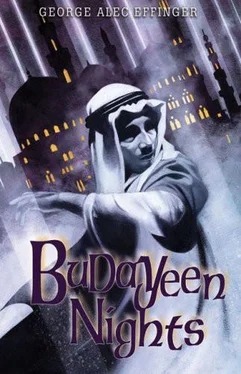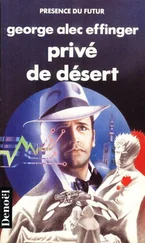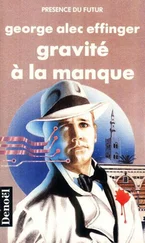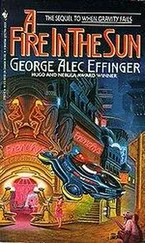“Not yet,” said the boy, shaking his head. “Do you really kiss other men?”
Ernst spat at the boy, and the dark boy laughed, dancing into the street, hopping back on the sidewalk. “Come here,” said Ernst, “and I’ll wrap this chair around your skinny neck.”
“It was only a joke, yaa Sidi,” said the boy, not the least afraid.
“A joke. How old are you?”
“I am nine, yaa Sidi.”
“Then you should know the danger of mocking your betters. I have the power to do you great harm: I may draw a picture of you. I may touch you with my left hand. Your mother will beat you dead when she hears.”
“You are wrong,” said the boy, laughing again. “You are a Nazarene, yes, or a Jew. But I am no rug-squatter. Touch me with your left hand, yaa Sidi, and I will gnaw it off. Do you wish me to fetch your supper? I will not charge you this time.”
“I tend to doubt your offer. In any event, I have a regular boy who brings my food. What is your name, you young criminal?”
“I am Kebap,” said the boy. “It means ‘roast beef in the language of Turkey.”
“I can see why,” said Ernst dryly. “You will have to work hard to take the place of my regular boy, if you want this job.”
“I am sorry,” said Kebap. “I have no wish to perform that kind of service.” Then he ran away, shouting insults over his shoulder.
Ernst stared after him, his fists clenching. “Ieneth will pay for her joke,” he thought. “If only I could find a vulnerable spot in these people. Without possessions, inured against discomfort, hoping for nothing, they are difficult indeed to punish. Perhaps that is the reason I have stayed in this capital of lice so long. No other reason comes quickly to mind.”
He sipped his wine and stared at the smudged handwriting on a scrap of paper: an ebauche of his trilogy of novels. He had done the rough outline so long ago that he had forgotten its point. But he was certain that the reflected light from the wineglass shifted to good effect on the yellowed paper, too.
“This was the trilogy that was going to make my reputation,” thought Ernst sadly. “I remember how I had planned to dedicate the first volume to Eugenie, the second to Marie, and the third…? I can’t remember, after all. It has been a long time. I cannot even recall the characters. Ah, yes, here. I had stolen that outstanding, virtuous fool, d’Aubont, put a chevalier’s outfit on him, taken off his mustache, and renamed him Gerhardt Friedlos. How the fluttering feminine hearts of Germany, Carbba, France, and England were to embrace him, if hearts are capable of such a dexterous feat. Friedlos. Now I remember. And there is no further mystery as to why I can’t recall the plot. It was nothing. Mere slashings of rapier, mere wooings of maid, mere tauntings of coward. One thousand pages of adolescent dreams, just to restore my manly figure. Beyond the dedications, did I not also represent Eugenie and Marie with fictional characters? I cannot read this scrawl. Ah, yes. Eugenie is disguised in volume one as the red-haired Marchioness Fajra. She is consumed in a horrible holocaust as her outraged tenants wreak their just revenge. Friedlos observes the distressing scene with mixed emotions. In volume two, he consoles himself with the contrasting charms of Marie, known in my novel as the maid Malvarma, who pitiably froze to death on the great plain of Breulandy rather than acknowledge her secret love. Friedlos comes upon her blue and twisted corpse and grieves. I am happy, I am very, very-happy that I never wrote that trash.”
Ernst took his short, fat pencil and wrote in the narrow spaces left to him on the scrap. My scalp itches, he wrote. When I scratch it, I break open half-healed sores. I have a headache; behind my right eye my brain throbs. My ears are blocked, and the canals are swollen deep inside, as though large pegs had been hammered into them. My nostrils drip constantly, and the front of my face feels as if it has been filled with sand. My gums bleed, and my teeth communicate with stabbing pains. My tongue is still scalded from the morning tea. My throat is dry and sore . This catalogue continued down the margins of the paper, and down his body, to end with, My arches cramp up at regular intervals, whenever I think about them. My toes are cut and painful on the bottom and fungused and itching between. And now I believe that it pains me to piss. But this last symptom bears watching; it is not confirmed.
On a napkin ringed with stains of chocolate and coffee, Ernst began another list, parallel to the first. The very continents shudder with the fever chills of war. Europe, my first home so far away, cringes in the dark sickroom between the ocean and the Urals. Asia teeters into the false adolescence of senility, and is the more dangerous for it. Breulandy rises in the north and east, and who can tell of her goals and motives? South of the city, Africa slumbers, hungry and sterile, under the cauterizing sun. The Americas? Far too large to control, too broken to aid us now.
Oh, and whom do I mean by “us”? The world is fractured so that we no longer know anything but self. My self finds symptoms everywhere, a political hypochondriac in exile. Perhaps if I were still in the numbing academic life of old, I would see none of this ; l’ozio e la sepoltura dell’uomo vivo — “ inactivity is the tomb of the vital man .” I have time to make lists now .
Of course he found sad significance in the two inventories when he completed them. He shook his head sorrowfully and stared meditatively at his wineglass, but no one noticed.
Ernst folded the paper with his trilogy synopsis and the first list, and returned it to his pocket. He skimmed through the second list again, though. “‘I have time to make lists now,’” he read. “What does that mean? Who am I trying to distress?” Just beyond the railing, on the sidewalk bordering the Fee Blanche, sat Kebap, the little boy named “roast beef.” The boy was grinning.
“Allo, Sidi Weinraub. I’m back. I’ve come to haunt you, you know.”
“You’re doing a fine job,” said Ernst. “Do you know anything of poetry?”
“I know poetry,” said the boy. “I know what Sidi Courane writes. That’s poetry. That’s what everyone says. Do you write poetry, too?”
“I did,” said Ernst, “in my youth.”
“It is lucky, then, that I cannot read,” said Kebap. He grinned again at Ernst, evilly. “I see that your usual boy hasn’t yet brought your supper.”
“Why are you called ‘roast beef? I doubt if you’ve ever seen any in your whole life.”
“One of my uncles called me that,” said the boy. “He said that’s what I looked like when I was born.”
“Do you have a lot of uncles?” asked Ernst maliciously.
Kebap’s eyes opened very wide. “Oh, certainly,” he said solemnly. “Sometimes a new one every day. My mother is very beautiful, very wise, and often very silent. Would you like to meet her, yaa Sidi?”
“Not today, you little thief.” Ernst held up the annotated napkin. “I’m very busy.”
Kebap snorted. “Certainly, yaa Sidi. Of course.” Then he ran away.
“Good evening, M. Weinraub.” It was Czerny, still dressed in his gray uniform of the Citizens’ Army. Ernst saw that the tunic was without decoration or indication of rank. Perhaps the Jaish was still so small that the men had only a handful of officers in the whole organization. And here was the man again, to persuade him that the whole situation was not foolish, after all.
“You are a man of your word, M. Czerny,” said Ernst. “Will you join me again? Have a drink?”
“No, I’ll pass that up,” said Czerny as he seated himself at Ernst’s table. “I trust your appointment concluded satisfactorily?”
Читать дальше












